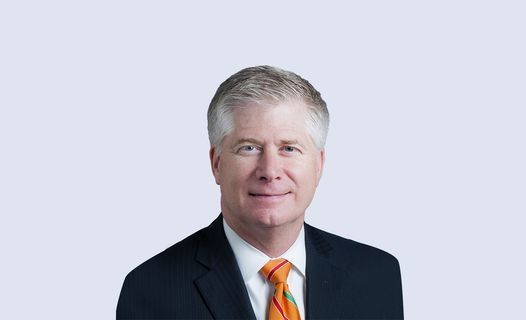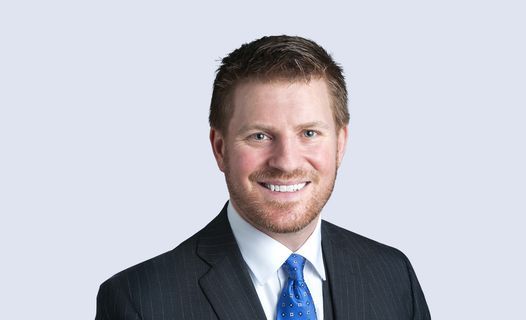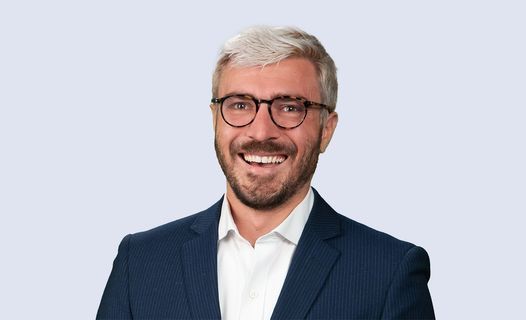Mike Elkon, Bert Brannen, and Corey Goerdt were quoted in the Daily Report on December 23, 2015. The article “Fisher Phillips Teaches Associates ABCs of Building a Book and Making Partner” discussed Fisher Phillips professional development program for the Atlanta associates, dubbed the Associate Business Coaching or ABC program, started by Atlanta Partner, Bert Brannen.
The program's aim is to communicate clearly to associates the expectations for making partner as soon as they are hired—and then provide the guidance they need to get there.
"We're trying to set them up to succeed," Bert said. "It's a very intentional way to guide people through the evolution from summer clerk to fully functioning first-year partner with more business than they can service on their own."
When Bert was a young Fisher Phillips associate in the mid-'80s, he said, firms didn't spell out what was required to make partner. Instead the tacit message to associates was that the firm would let them know if they made it. "It's been very black box."
"Historically, lawyers are terrible at giving good feedback," he added. "If you were getting assignments, you were getting feedback."
But today's young associates have different expectations, Bert said. "We want to be sensitive to millennials' need for stroking and constant encouragement and just being in on things."
How It Works:
Michael Elkon was one of the four associates who made partner after Brannen started the coaching program. When Elkon joined Fisher Phillips in 2011 as a senior associate from Seyfarth Shaw, he said, he had plenty of relationships, but no actual business of his own.
Mike, who advises management on trade secrets and noncompete agreements, said the ABC program created structure and forced him to think strategically about business development.
"I am someone who tends to benefit from deadlines. So much of my practice is putting out fires—and marketing is never a fire unless you make it one," Mike said, adding that he came out of each meeting with Brannen and other partners with a to-do list for the next one.
In addition to the one-on-one coaching, Brannen made sure there were business development dollars budgeted for associates. He also organized a monthly lunch where younger rainmakers at Fisher Phillips visited to tell their stories, including an associate in California who developed a $2 million book and made full equity partner in six years.
"Every successful rainmaker here has their own story," Brannen said. Some lawyers write articles and present at conferences, he said, but a couple of very productive rainmakers in Atlanta take clients on hunting and fishing trips instead.
He tells associates they don't need to pattern themselves after other lawyers and to find their own method. "That's the millennial way."
Mike is a sports fan, so he used his business development dollars to invite clients to games—and he likes taking them to lunch. "The major rule is to do what works for you," he said.
Mike said the book of business he's built has come from cultivating existing relationships. "It's not going to a cocktail party and meeting someone new and doing their legal work," he said. "Eighty to 90 percent is already in your Outlook contacts."
Bert asked some third-year associates at a recent check-in if they'd spent any money on entertainment in the last month. They had not, so he made that their assignment for the next month.
"Taking people out for lunch and dinner is a way to maintain your relationships. Everyone comes here with a sphere of influence—a network—but lawyers get so focused on lawyering they can lose all their contacts," he said.
The current crop of six Atlanta associates are in their first through fourth years of practice, so the coaching program's focus has shifted to helping them get good work from partners as they learn the ropes.
"You don't want first-years worrying about giving speeches to the Rotary Club," said Bert. "For them, it's more about developing good lawyer skills. It's about getting good work from partners for institutional clients."
Corey Goerdt, a first-year associate, said he knows the criteria for making partner. "On day one, they told us the number you have to hit to become a partner here—and that they want us to become partners," he said. "Bert is into transparency."
But right now, he is building business internally, seeking out work from partners in areas that interest him. "A big part of it is staying visible and reminding people that we exist," Corey said, adding that he's been having a lot of casual lunches with his new colleagues.
"I probably won't be developing a whole ton of business in the first couple of years," he added. But while he's cultivating relationships with partners, he's keeping up with outside contacts and making new ones.
Bert encourages Fisher Phillips' associates to work the firm's internal marketplace by asking them a lot of questions in the one-on-one meetings, he said. "Who have they worked with? Who haven't they worked with? Are they stuck in one class action case? Do we need to get them assigned to another partner?"
At a check-in meeting earlier this month, Bert advised the associates to get work lined up from partners before the partners left town for the holidays. Partners "are going to be particularly self-absorbed," at this time of year, he warned them. "Some are going to leave Dec. 22 and not get back until Jan. 4. They're not going to be thinking about feeding the people left behind."
Selling oneself, whether to partners internally or clients externally, is fundamental to succeeding as a lawyer at a large firm today—but a lot of new associates don't realize it, Bert said. "People become accountants and lawyers because they don't want to be salespeople. Then they wake up."
To read the full article, please visit Daily Report.




